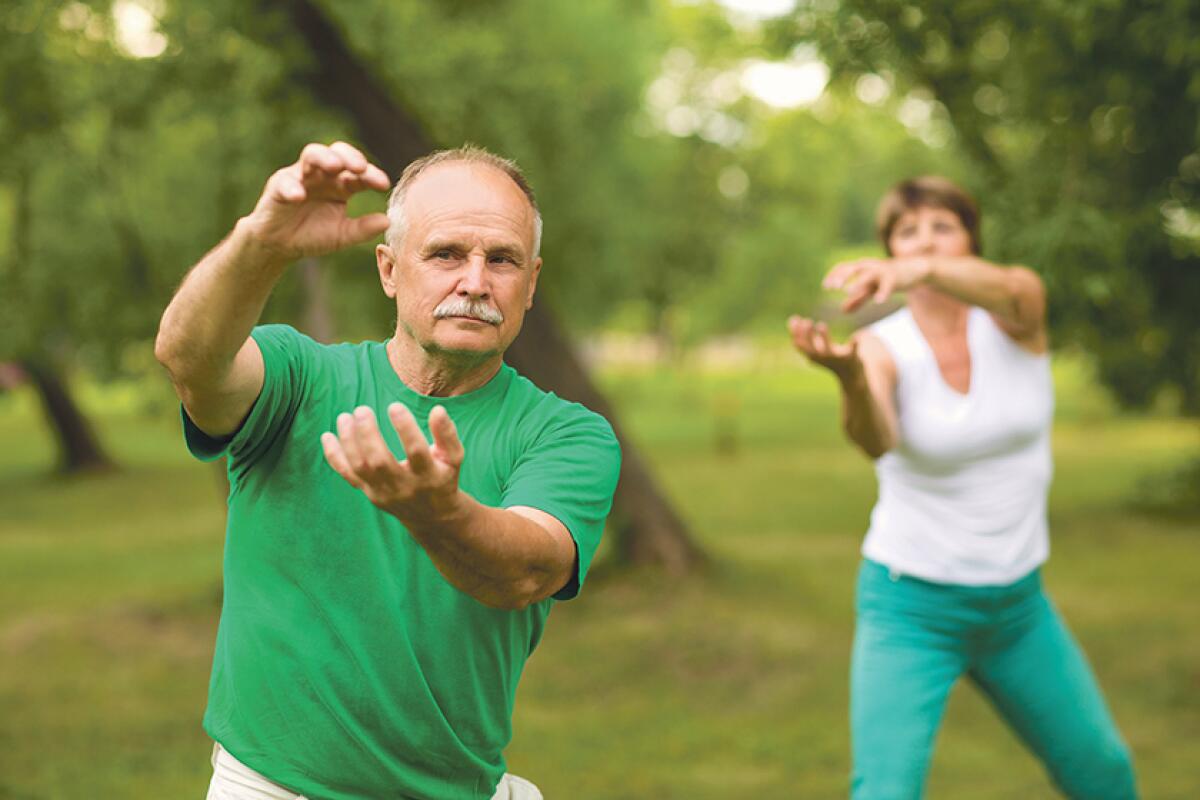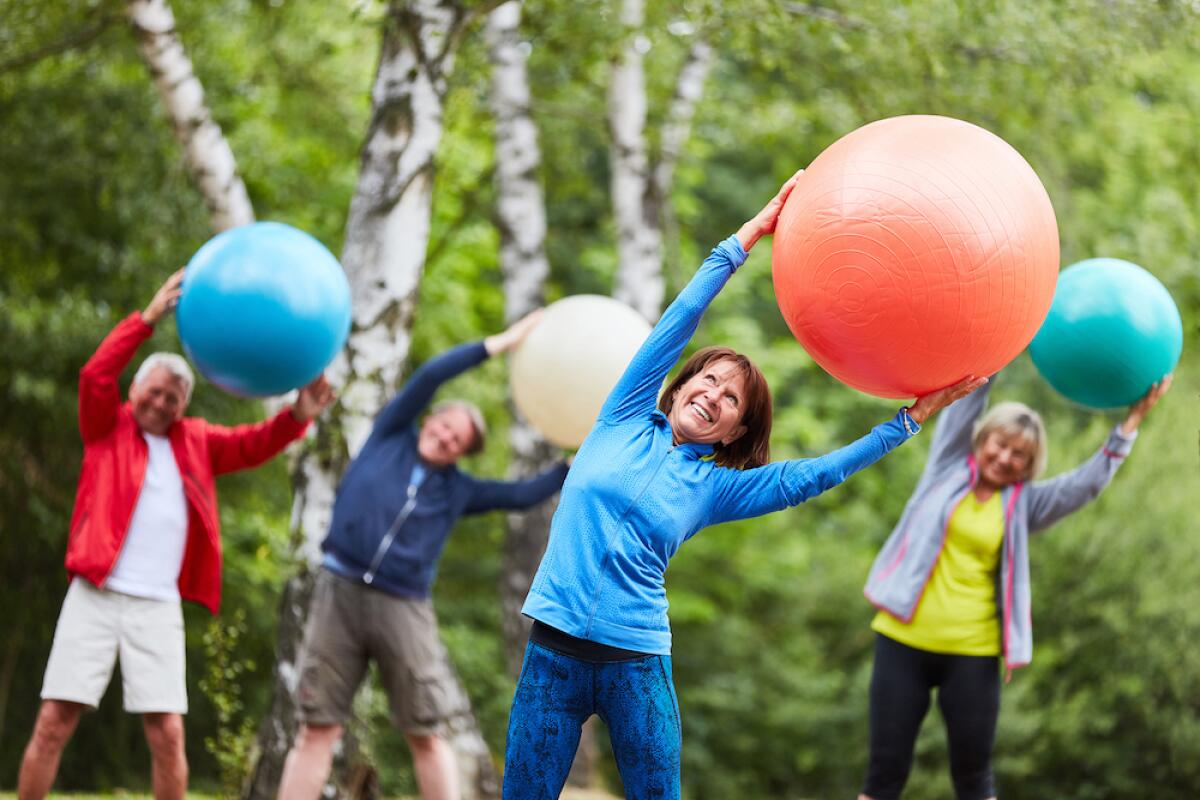Column: Perks of old age: Nobody says, ‘Grandpa, would you please move this refrigerator?’

- Share via
Aging has its drawbacks, if you hadn’t noticed.
But are there any benefits to getting older, other than the fact that it beats the alternative?
I asked that question of readers a few weeks ago, and apparently the answer is yes, yes, yes, yes, and yes again, according to the hundreds who chimed in.
“When I asked for pre-boarding on a flight this month,” said Betty Hechtman, “the airline person didn’t even ask why but just gave it to me.”
California is about to be hit by an aging population wave, and Steve Lopez is riding it. His column focuses on the blessings and burdens of advancing age — and how some folks are challenging the stigma associated with older adults.
The next time I line up for a Southwest Airlines flight, and my boarding number is C56, I’m going to try the Hechtman Hustle and see if it works.
Another big advantage to stacking up birthdays, Mark Slocum said, is that you are met with lowered expectations. “I never hear anyone say, ‘Grandpa would you please move this refrigerator?’ Or ‘Grandpa, could you please climb up to fix the roof?’”
And speaking of grandparenting, Slocum said his skills in that department are seldom called into question. Keep the kids safe, he said, and he can get away with saying things like, “You boys want milkshakes with those breakfasts?”
As noted in my June 22 column, I swiped this idea from “Three Not-So-Bad Things About Aging and Longevity,” a weekly newsletter affiliated with the Stanford Center on Longevity.
Some readers sent a single thought on the topic, while others — apparently with a lot of free time on their hands — ran up lists of 10 or more. I’m sorry there’s space for only a fraction of the responses, but I’d like to share some of my favorites, beginning with this observation from Linda Heisen:
“I wear my bra A LOT less,” she said. “Let freedom swing.”
Heiden had more to contribute, saying that instead of a bucket list, she has a forget-about-it list. She’s not one for the ever-popular retirement pursuits of learning a language or taking up an instrument, “both of which I’m crappy at.” Her motto is to do what works for her, “even if it means disagreeing with my doctor and not upping my statin to get my LDL below 80. Enough chasing magic numbers!”
That kind of blunt, liberated attitude was threaded through the responses, especially when it comes to fashion.
“There are advantages to being invisible,” said Stephen Wilson. “I’ve finally figured out that nobody cares what I wear. If I had the desire, I could dress like a Walmart shopper.”

Gary Fisher is not lingering at the closet, either. “I wear cargo pants or shorts and an aloha shirt basically everywhere,” he said. “I consider this to be the height of fashion.”
You won’t find Marian Sunabe at Bloomingdale’s, either. “You go from dressing for others to dressing for yourself,” Sunabe said. “I can wear whatever fun and funky and COMFORTABLE clothing I find at the thrift shop!”
That kind of self-assured, this-is-who-I-am mentality can be liberating, as Madeleine Fisher Kern related in telling me that she quit bothering with hair color touch-ups.
“I finally had the courage to allow my shining mantle of snow white to emerge to the ooohs and aaahs of friends and strangers alike,” she said.
And Fisher Kern offered up another keen insight: As “humans continue to disrespect each other and their environment,” she said, she worries about younger loved ones but sees an advantage for herself. “I will not be around to experience the ugliness of it all.”
Quite a few readers mentioned what I’ll call the Free Pass advantage. of moseying along the home stretch of life.
Meg Hassenpflug said she came to realize “there is no need to engage with people you don’t care for.” Kay Bloor said she no longer feels obligated to “attend events I’d rather not go to.”
Excellent observations, and I second the notions. Time becomes more precious along the home stretch, and it’s like Social Security — you’ve earned the right to spend it as you wish.
Jackie McCone teed it up perfectly:
“If you want to play the age card, for whatever reason,” McCone said, “it’s about 99% effective.”
Ken Brock is certainly taking no half-measures.
“I am retired even from volunteer work,” he said, “and I am happy not to have to see or deal with people, for the most part.”

Let’s move on now to some practical, day-to-day benefits of advancing age.
“I’m not hearing things I didn’t wanna hear to begin with,” Jaz Kaner said
“No one wants to pick a fight with an old person. There’s no perceived glory in it,” Keith Schurer wrote.
There is glory, however, in bringing home the gold, as Mark Haendel has done after 50 years of running the trails in Will Rogers Park and competing in races. “As you move into older and older age groups while competing,” Haendel said, “you get a lot of medals.”
He’s been last in the race, but first in his age group.
Give that man another gold medal.
I heard from lots of readers who speed things up as they age, taking up new hobbies, going to the gym, volunteering for pet causes. One woman said she has enjoyed hanging out with the grandchildren, gardening, “and finding out sex without intercourse is pretty great, too!”
That’s why they say the key to happiness is to never stop learning.
But slowing down works for a lot of people, too.
“You can sit back quietly and observe,” as Anne Whitacre put it. “Most things are not your problem.”
Laura Epstein Scully, once a corporate “worker bee,” enjoyed downshifting in retirement and taking a “mañana attitude.” “I glance at my to-do list and say to myself, ‘None of those has to be finished today. I can read a book instead.’”
William Shields is on the same clock, “reading novels on the rocking chair on my porch” and feeling as though “this is the happiest time of my entire life.”
Among the other philosophers who weighed in:
Mark Frey, who said, “You’re finally a grown-up and discover that inner child you suppressed all these years.”
Ron Dean, who wrote, “I notice the colors and shapes of the world much more. They’re pretty remarkable.”
And Daryl Studebaker, who said, “I’m not in such a hurry to get there, but more curious about what I find along the way.”
Mike Lyons and his husband have found something timeless in Griffith Park, where they walk their dog.
“Oh my gosh, the world is beautiful,” he said. “The trees, the seasonal changes, the play of light and shadows across the city. I have given myself over to beauty, wonder, and gratitude. The world is amazing … I’ve never felt it so deeply.”
Nicely put, and Lyons wasn’t done. With the luxury of time, he explained, you can make smart choices about what’s important in the world. “I’m glad I made myself turn off the news on TV,” Lyons said. “It was sinking me in despair and anger.
“I still read the news from various sources online, but I limit the amount of time I give that, too. The Olympic test of being an adult is realizing that the world can be brutal and glorious at the same time. The great test is finding a balance between the two, and I intend to fight this good fight for the rest of my days.”
I could go on and on, thanks to readers. But for now, just two parting thoughts.
“On the subject of aging,” said Shirley Wells-Ruge, “we are experts simply because we are old. I do not need another degree, another certificate, another license. I am an expert because I am 90 years old. No one argues with me; those who would have are dead.”
And finally this, from Leah and Norm Schweitzer:
“A great thing about aging,” they said, “is that you don’t have to worry about dying young.”
More to Read
Sign up for Essential California
The most important California stories and recommendations in your inbox every morning.
You may occasionally receive promotional content from the Los Angeles Times.










